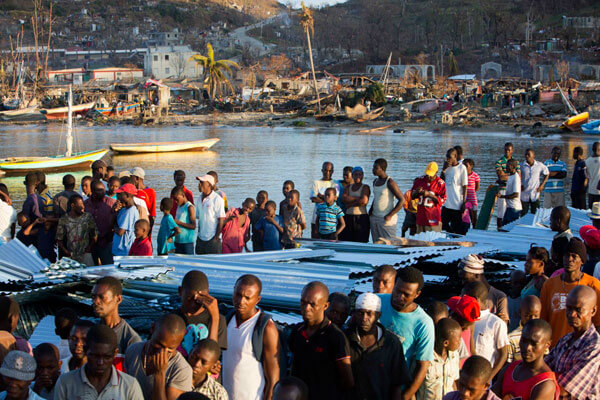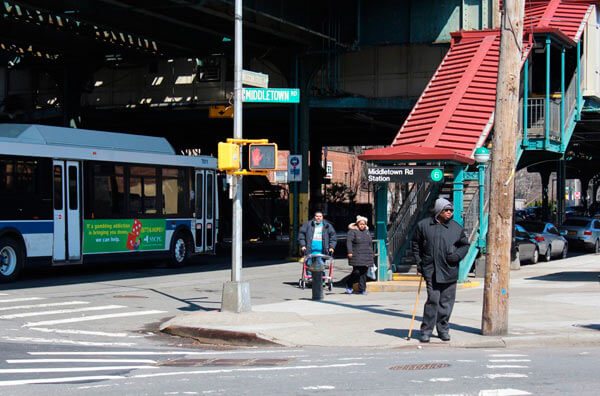Despite the fact that its economy is tanking owing to low export prices for oil, gas and petroleum products, Trinidad is taking the lead among Caribbean Community countries in giving actual relief to Haiti after one of the most powerful storms in a decade devastated the island, killing hundreds in the past week.
And while the administration of Prime Minister Keith Rowley is preparing its own package of assistance to Haiti, a number of private sector and para statal agencies have taken the initiative to put together containers with relief supplies destined for the poorest country in the hemisphere.
San Fernando City Corporation in South Trinidad, for example, is preparing to ship the first of eight 40-foot containers with food items and other supplies. The container was expected to leave this weekend.
It contains medicine, toiletries, building supplies and other necessities. Mayor Kazim Hosein told the Guardian Newspaper that the city has collaborated with several private foundations to gather relief for Haiti. Citizens are also being urged to donate to the first container before it is sealed and put on a vessel. “Everything here is volunteerism,” Hosein said as he urged folks to contribute.
The Bankers Association also established a special Haiti Relief Hurricane Fund with all eight of its members inviting the public to make donations.
‘Our prayers are with Haiti at this time and we are asking that you join us in bringing some measure of relief and comfort to Haiti,” the association said. Finance Minister Colm Imbert also threw in government’s lot “urging the national community to contribute to the relief of persons in Haiti being impacted by the recent devastation caused by Hurricane Matthew.”
Neighboring Venezuela also joined in the charity fray. Ambassador Coromoto Godoy-Calderon donated 2,500 cases of bottled water but by midweek there were not many strong indications from other Caribbean governments and charitable organizations about helping Haiti in its time of crisis.
Guyana’s government indicated that cabinet was prepared to assist Haiti in any way possible but it did not provide details.
The most endowed country in the 15-nation bloc of nations has in the past sent military engineering battalions to a number of fellow bloc member countries affected by storms and other natural disasters including Montserrat. It also usually sends generous amounts of rice, water, construction materials such as timber and vegetables but no details were released.
It however, said that authorities had sent the head of the local relief commission to a meeting in Barbados this week where Haiti topped the agenda of a “Caribbean Disaster Emergency Management Agency (CDEMA) meeting. CDEMA is based in Barbados.
“Guyana will make its contribution to the efforts to rebuild once the damage is properly assessed,” said State Minister Joseph Harmon.
The United Nations has in the meantime asked donors to contribute $100 million to Haiti, noting the fact that the country is still recovering from the devastating 2010 earthquake that is believed to have killed more than 300, 000 people.
‘’The hurricane has caused the greatest human crisis in Haiti since the earthquake of 2010, precisely at a time when there still threatens all of famine and increase in the number of cases of cholera,” the United Nations said.
But even as appeals were going out, CARICOM Chairman and Dominica’s Prime Minister Roosevelt Skerrit and a delegation arrived on the island to assess the damage and to advise the region about its needs. Haitian officials say the storm killed more than 900 people and left hundreds of thousands homeless, stranded and hungry. Others face the outbreak of deadly diseases such as cholera.
“We are going to have ensure that we pit in place a very strong and robust strategy and program to go beyond the relief phase of our response to disasters. Because there will have to be some long-term programs and projects which we will have to put in place for them to sustain themselves. I believe some of the areas we can look at is getting the students back into school as soon as possible. Also to underwriting a school feeding program,” the prime minister said.






















